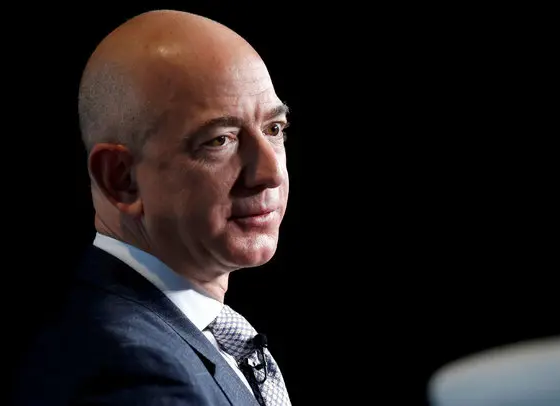In a blog post entitled “No thank you, Mr. Pecker,” Amazon CEO Jeff Bezos rocked the news cycle last Thursday with his accusations against the National Enquirer’s publisher, American Media Incorporation (AMI), of extortion and blackmail.
The billionaire’s invested interest in AMI began in January, when the National Enquirer put out a print exposé on his affair days after he announced his divorce from his wife on Twitter.
When the piece included text messages that were sent between him and another woman, Bezos went on to hire Gavin de Becker as a private investigator to look into how the Enquirer obtained the materials. After several weeks, reports were put out with statements from Becker where he insinuated it was a “politically-motivated” leak.
Trump and Bezos have been long-standing adversaries, the result of Bezos’s ownership of both Amazon and The Washington Post, a media outlet the president has denounced on many occasions as “fake news.”
In contrast to Bezos, Pecker—the CEO of AMI—has proven his news organization to be one that likes to play in Trump’s favor. During the Cohen investigation, it was uncovered that the AMI was involved in a “catch-and-kill” deal for his presidential campaign. They had purchased the rights to women’s stories that negatively portrayed Trump, yet proceeded to never publish them. Pecker and the AMI were granted an immunity deal by federal prosecutors that allowed them to escape persecution.
It was circulating, then—based on both Becker’s statement and Pecker’s history—that the leak and the exposé that was born from it were moves by the AMI to butter up the president and make up for having to turn against him in order to get the immunity deal.
This drawn-out narrative, Bezos writes in his post, is what led to the series of threatening correspondence he receives from the leadership at AMI.
“It is our understanding that [Bezos’s] representatives continue to pursue and to disseminate false and spurious allegations,” Jon P. Fine, Deputy General Counsel for the AMI, is alleged to have written in an email to Bezos’s lawyers. “Accordingly, we hereby demand that you cease and desist such defamatory conduct immediately. Any further dissemination of these false, vicious, speculative and unsubstantiated statements is done at your client’s peril.”
The emails then go on to describe in detail the 10 explicit pictures of Bezos and his mistress they claim to be in possession of, concluding with: “I hope common sense can prevail?—?and quickly.”
“These communications cement AMI’s long-earned reputation for weaponizing journalistic privileges, hiding behind important protections, and ignoring the tenets and purpose of true journalism,” Bezos states in the post. “I won’t participate in their well-known practice of blackmail, political favors, political attacks, and corruption.”
Bezos provides little to corroborate the validity of the content of these emails, but it is unlikely that he would make exaggerated claims such as these so publicly if they were untrue. The stakes are simply too high; if found to be fabricated, he risks social, economical and legal repercussions.
New York prosecutors think these accusations might be credible, too, as they’ve begun to look into them. If found to be true, not only could the AMI be brought to court, but they would be in violation of one of the conditions of their immunity deal and could be persecuted for their previous crimes as well.
These are the intense circumstances that make Bezos’s choice to deal with them publicly rather than privately so strange. This decision is indicative of how much harder it is becoming to make the distinction between news and entertainment in today’s society.
Before Bezos went public with the emails he received from the AMI, he was largely villainized by news outlets. In the public perception, he was seen as dishonest and stingy. When word got out that his wife may become the richest woman in the world from their divorce, people commended her on social media, the jokes often as his expense.
With his blog post on Medium, though, Bezos is changing the narrative, opening up about how the conflicts that have arisen from his divorce are morphing his reputation. From his piece—whether or not it reflects reality—readers get the sense that he is a protector of ethical journalism and a public figure that refuses to cave to corruption.
Through the intimate gossip surrounding his divorce and his affair, Bezos is indirectly bringing relevance and attention to politically charged events that were reaching minimal audiences before he got involved. The public battle between Bezos and the AMI has effectively built a crossroads between news and entertainment for the general public.
The closing of Bezos’s open letter to Pecker may be the best testament of this political theater; as the audience watching how this narrative develops, we have no choice but to “stand up, roll this log over, and see what crawls out.”











